Kitsutsuki Tanteidokoro – 09
I think with a lot of anime mystery series, it’s less about the destination than the journey. And that certainly applies to Kitsutsuki Tanteidokoro. The mysteries it tells are fine – and this was the best of the bunch – but they’re not especially difficult to figure out. The point here is the interesting little asides on human nature, the interplay between the characters, the insider comedy, and the lovely aesthetics. And honestly, that’s more than good enough for me.
As Ishikawa’s illness has come into play Kitsutsuki has become a more engaging series on every level. He was already an interesting character, but a bit one-note – even if we knew (from the cold open if not from history books) that he was doomed to an early death. He’s still a jerk, but Takuboku’s journey has taken an introspective turn, and that’s where this arc really shone. I never really had any doubts that Tamaki-san was the real killer – but that wasn’t really the point.
Mind you, when someone like Ishikawa has an existential crisis they don’t go halfway. They fall in love with murderers, they embrace anarchy (“An Appeal to the Young”), they find the church (as least find it a convenient means of ingratiating themselves to their beloved). Tamaki certainly had her reasons for what he did, and Sonobe is a truly evil bastard if what she said about him was true (and we have no reason to doubt her). But in the end she comes off as someone who uses people – to the extent of causing their deaths – for her own cause. And eventually Takuboku would have been one of them, if she hadn’t gotten caught with his help.
I continue to be quite enraptured by this series’ ability to set a mood using nothing but backgrounds and music, and the way it incorporated Dvorak’s “Humoresque” – the play-over for the episode previews – into the story. It’s a piece of music that quite evocatively speaks to another time, and while it’s certainly not one commonly associated with Japan it somehow feels wholly appropriate for turn-of-the-century Asakusa. Another really nice choice by this adaptation, which is steadily improving as it heads into its final third.
Fruits Basket 2nd Season – 10
It’s on my mind at the moment for obvious reasons but it occurred to me while watching this episode – Momiji really is the great pretender. Maybe that’s why even after almost 20 years, he can still break my heart like no one else in this cast. The act he puts on for the others isn’t a deception per se – more like an objectification of the life he wants, and can never have. Momiji cosplays as himself because that’s the only way he can cope, but that makes the moments when his real self appears that much more poignant.
Lately there have been a lot of new viewers asking the very question Tohru asked this week, “just what is Akito to the Sohmas?”. That tells me Furuba picked the right time to have her ask it, and while it’s a big reveal it really isn’t much of a surprise. Akito is in effect God – though that still doesn’t explain precisely how Akito enforces this status. Tohru is quite simply an affront to that – an outside influence when all outside influences are unwelcome and dangerous. When the Zodiac is the whole world, nothing else is needed or desired. And if it’s good enough for Akito it should be good enough for everybody else.
As the children (including Momiji) get ready for the big “Mogeta” special and fireworks (purchased and organized by Momiji) are planned for the final night of the trip, Akito gets more and more irritable. And the ever-present smile on Shigure’s face looks more and more sinister and hostile. Something is hotting up here, that’s for certain, and no one seems to enjoy winding up Akito like Shigure does (or be as good at it). The problems is that (think back on it) there are always consequences when Shigure gets Akito wound up, and someone else is always in the firing line. I can’t imagine Shigure doesn’t know that, but that doesn’t stop him.
Momiji standing up to Akito to try and protect Tohru is certainly one of the more important moments of the series, and one of my favorite Momiji-ments. But it’s not easy to protect someone, especially when it’s Akito they need protection from. The physical wounds are superficial but one need only look at Momiji’s face to understand how deep they are psychologically (as Tohru does).
It’s no wonder the Japanese loves fireworks, especially sparklers – they epitomize the much-adored concept of mono no aware (which I would argue is at the very heart of the Japanese psyche) as well as anything can (better than the cherry blossoms, even). Make of the symbolism what you will, but it’s no secret that the road ahead is a hard one. Fruits Basket is just so much better when it focuses on this core group of characters – everyone who really matters to the story was at that vacation house, and Furuba always seems to thrive when all the extraneous chaff is stripped away.


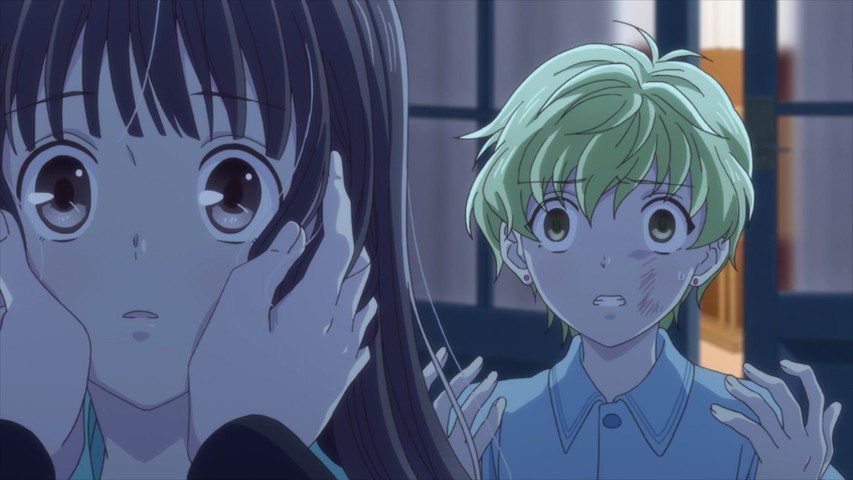
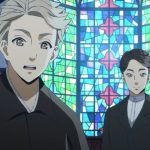




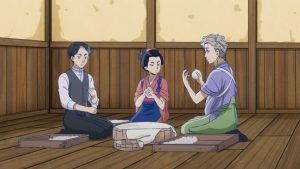
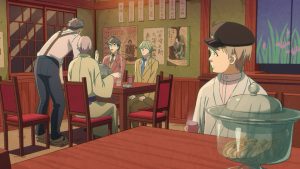


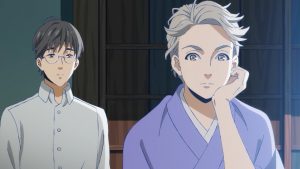
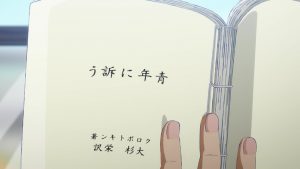


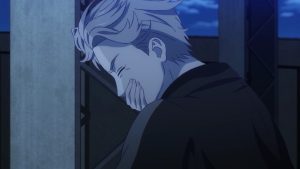
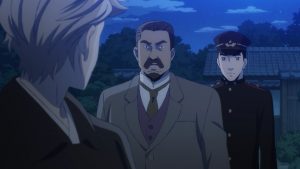
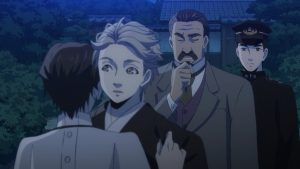
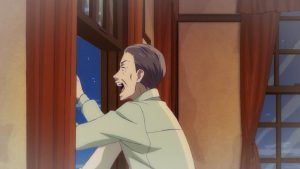












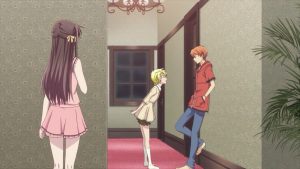

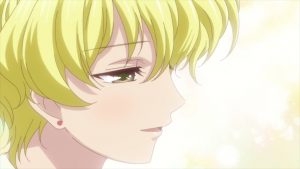
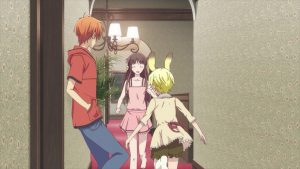

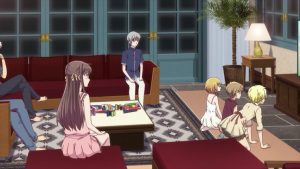
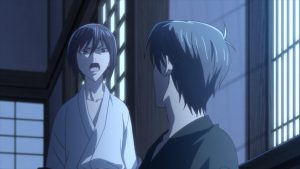
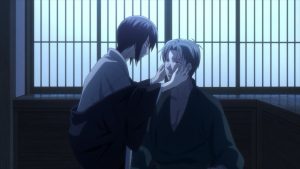
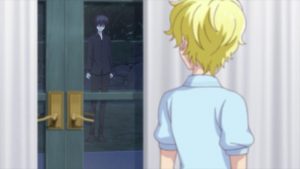
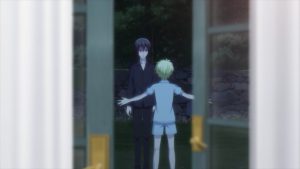
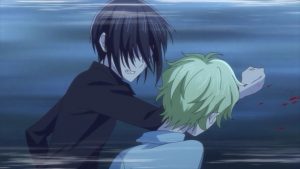
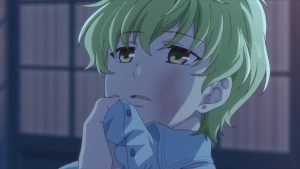
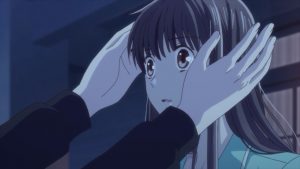



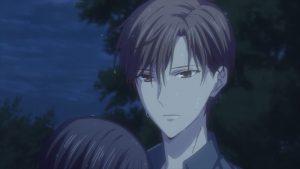
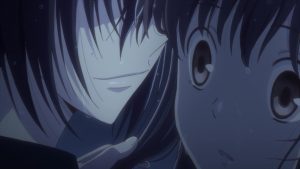
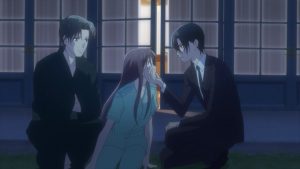

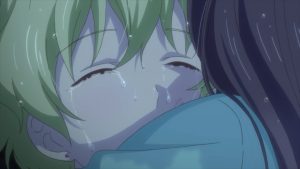
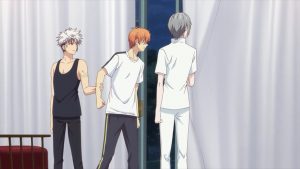
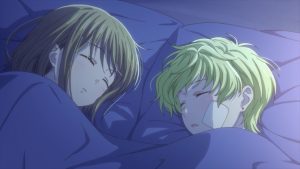
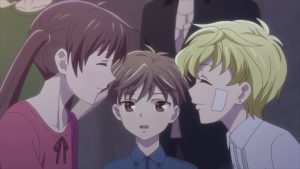

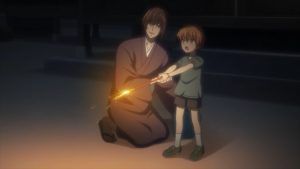
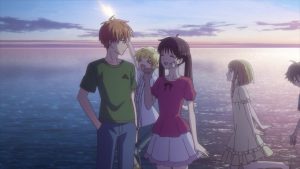

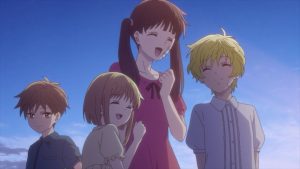

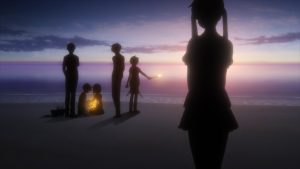
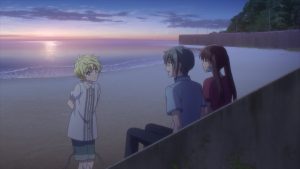
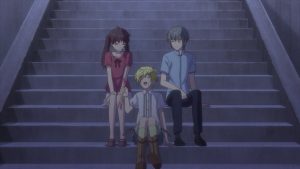
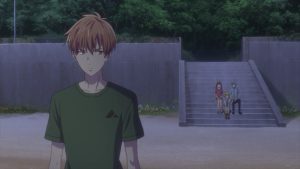

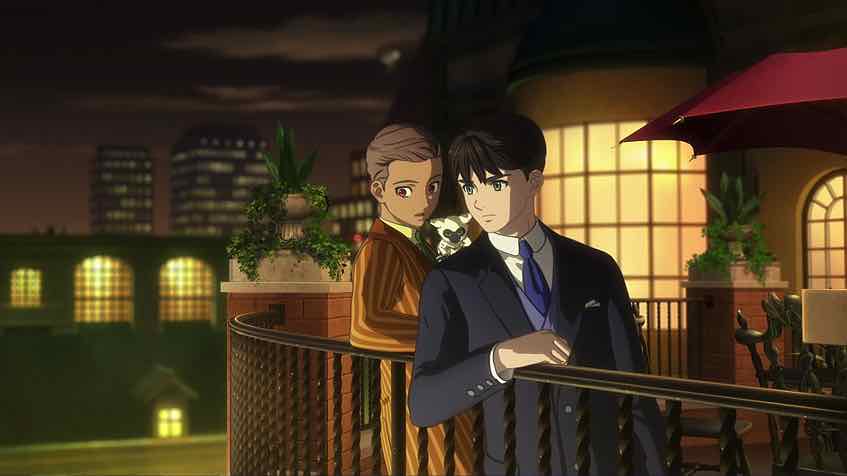
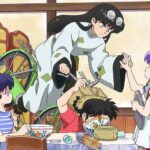
Mi-chan
June 10, 2020 at 12:11 amI would like to take a moment to appreciate Tohro as well. I am so glad she wasnt that heroine that goes crying and gives up then realizes (also unlike Kana with Hattori) and I am so glad she knew what her role was from the start. I am glad she is not a total airhead.
Momiji and Shigure for me were two of today’s episode heroes. I think one of the only few charecters whose motive still remains unclear and rather backstory are Kureno, Rin and Shigure.
I definitely cannot wait to find out more 🙂 the 10 year old in me is still curious!
Thanks for your review as always.
Guardian Enzo
June 10, 2020 at 9:15 amI admit there are times I find Tohru to be a bag of tropes and a lot to take. But she’s certainly not an airhead and she certainly never gives up.
Earthlingzing
June 10, 2020 at 2:01 pmThis recent run of furuba makes me glad it wasn’t dropped. It’s been awhile since we got so many good episodes in a row.
Guardian Enzo
June 10, 2020 at 2:37 pmUnfortunately next week is going to happen. But I’ll be back, don’t worry…
Earthlingzing
June 14, 2020 at 1:37 amThat is a pity. Oh well.
Guardian Enzo
June 14, 2020 at 9:07 amThere’s no cure for Kagura.
aldeayeah
June 10, 2020 at 5:36 pmMomiji wants others to be happy, or rather, he fears others being hurt. He will gladly sacrifice himself to prevent that. But as he grows up, he’s starting to see the limits of that approach.
At some point he’s going to have to stop setting himself up as the sacrifice, and instead start standing up to others and pursuing his own happiness.
As a coming-of-age story, Fruits Basket captures him in transition between those two worlds.
Guardian Enzo
June 10, 2020 at 6:26 pmI would argue his story has the most weight of anyone in the cast apart from arguably Kyo (his is more straightforward but very powerful), despite getting much less screen time than the big three.
aldeayeah
June 11, 2020 at 4:08 pmI find his relationship with Tohru interesting because they are very similar – they both are the “foolish traveler” from the story.